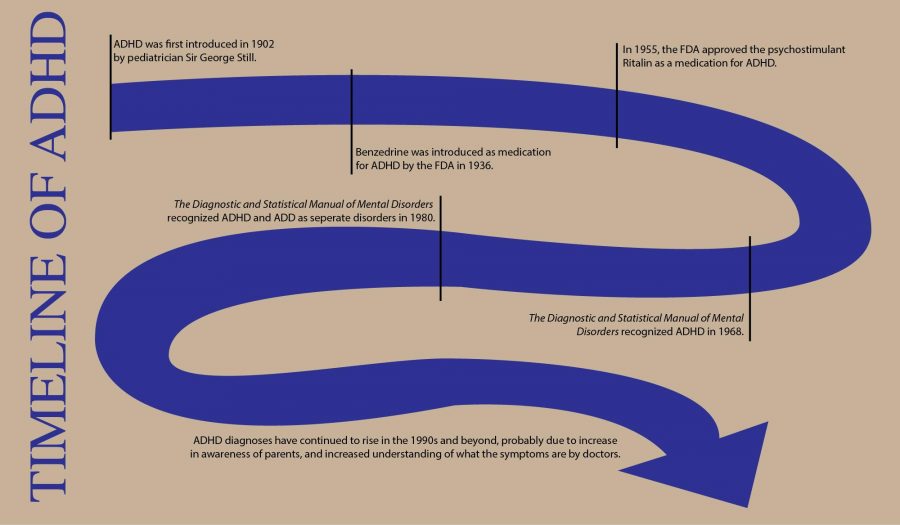ADHD, over diagnosed and socially constructed
April 4, 2014
ADHD is the most studied pediatric mental health disorder, yet there is still controversy and over the diagnosis and medication treatment of it. One thing that is known for certain is that more kids than ever before are being diagnosed with it.
“Before 1970, the diagnosis of ADHD was relatively rare for schoolchildren and almost nonexistent for adolescents and adults. Between 1980 and 2007, there was an almost 8-fold increase of ADHD prevalence in the United States,” Daniel F. Connor reported in Psychiatric Times.
It is in question whether these diagnosed kids actually have a serious mental disorder that needs treatment or if they are just restless and unfocused, a result of our constantly stimulating environment.
According to Science Daily, “child and adolescent psychotherapists and psychiatrists tend to give a diagnosis based on heuristics, unclear rules of thumb, rather than adhering to recognized diagnostic criteria.”
Another question that is raised is that if they kids are truly being affected by a mental disorder, why so many of them? Are social influences affecting the way our brains work?
Child psychiatrist Sami Timimi argues that ADHD is not an objective disorder, but that western society creates stress on families and causes for children to express symptoms of ADHD. This means that it could be a culture-bound syndrome. Culture-bound syndromes are difficult to define because they are only experienced and recognized in that culture.
We see ADHD more often in the United States possibly because we live in a high-tech society that is constantly growing, and kids’ not-fully-matured brain may not be able to process the fast living lifestyle that our culture is often found in.
Another problem is the medication of ADHD. Doctors are quick to reach for the prescription pad when they have a patient with ADHD. But medications aren’t the only, or even the best, option.
There are no scientific studies that prove ADHD medications work long term, only short term. No studies have adequately looked at the effects of medications after 10 or 15 years of use.
It is true that some children benefit from ADHD medications. However, doctors need to take the time to diagnose this condition and if possible try other treatments such as dietary or behavioral therapies before using powerful drugs whose long-term effects are mostly unknown.








Joe DeWaele • May 7, 2014 at 8:30 am
The article is well written, with the included quotes from specialists. However, the article is only written for ADHD and does not adhere to ADD at all, it should at least be mentioned in the beginning of the article about being grouped with ADHD.